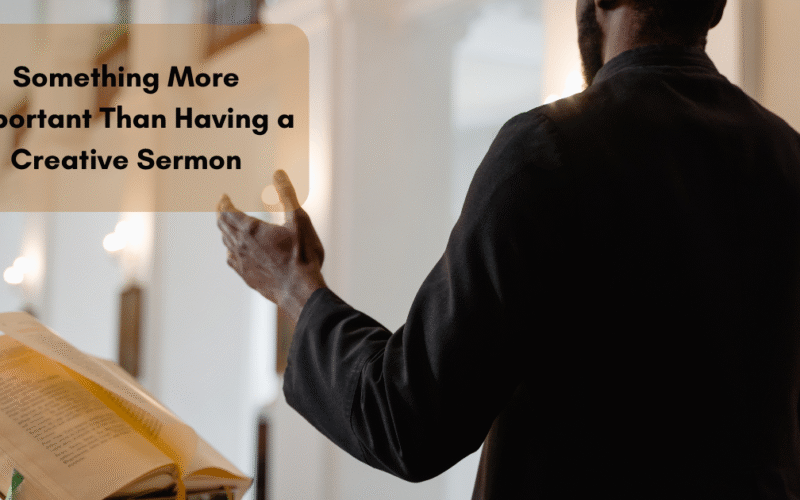One of the things we see a lot these days especially in churches and online is the hunger to preach creative sermons. Sermons that make people clap, that make people cry, that make people think wow this is deep. People want to preach messages that will go viral or make their members feel they are listening to something fresh and unusual.
But here is the truth that many people are forgetting and we need to remind ourselves every day. A creative sermon is not bad, but it is not the most important thing. The most important thing in any sermon, in every sermon, no matter how long or short or trendy it is, is Truth.
Why? Because only the truth can set people free and only the truth can reveal Jesus and only the truth can truly transform a heart. It is not rhymes or clever phrases or Greek words or powerful quotes that bring salvation. It is not poetic flow or deep insights or prophetic codes that save souls. It is the truth of the Word of God that changes a man from darkness to light.
What Is Truth in a Sermon?
Truth in a sermon is not just reading a verse and using it to support your idea. Truth in a sermon is when the message you preach is born from the Bible and not forced into it. It is when your examples and your explanations and your stories are not hiding or twisting what God actually said.
You might think a sermon that makes people scream and stand up and shout is powerful, but if it is not the truth, then it is just noise. If it does not align with the whole counsel of God, it is just a performance. No matter how creative or emotional or interesting the message is, if it is not the truth, it is not useful.
Still confused?
Let’s break it down this way. If someone is dying and you give them a sweet-tasting poison instead of bitter medicine, you have killed them gently. A sermon that is not built on truth is like that. It may be enjoyable. It may taste good. But it is poison if it is not truth.
How Do You Know If a Sermon Is Truth-Filled?
You need to check what the Bible says. You need to read the full chapter not just one verse. You need to ask questions like “Is this what Jesus taught?” and “Does this match what the apostles taught?” You also need to be humble enough to throw away any revelation or angle that looks deep but has no scriptural foundation.
We live in a time when people are applauding error because it was preached with confidence. But a lie told with conviction is still a lie. A twisted doctrine preached with tears is still false. A preacher can cry and shout and sweat and pour their heart out and still be completely wrong if what they said is not rooted in truth.
Where Can We Find the Truth for Sermons?
It is not in social media trends. It is not in other people’s sermons. It is not in the cleverness of your mind. It is in the Scriptures. Spend time there. Pray there. Meditate there. You do not need to invent truth. Truth already exists. You only need to declare it faithfully, humbly, and boldly.
If God gives you creativity, use it. If God gives you insight, steward it well. But never let your creativity become a replacement for truth. Never let cleverness hide the cross. Never let performance replace the presence of God.
The most powerful sermon is not the one that sounds sweet but the one that speaks Truth even when it is hard.
“Sanctify them by Your truth. Your word is truth.” — John 17:17
Let the sermon be simple if it must be. Let it be dry if it has to be. But let it be true. That is what matters. That is what changes lives. That is what heaven is looking for.

Dia duit, theastaigh uaim do phraghas a fháil.